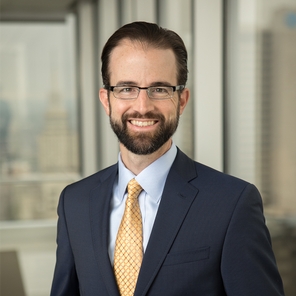
No Good Deed Goes Unpunished - Loan by Physician/Owner to Medical Practice for Payroll Triggers Trust Fund Penalty
-
 Anthony P. Daddino
Anthony P. Daddino
View Bio
As the old adage goes, no good deed goes unpunished. In McClendon vs. United States, decided on November 17, 2016, the federal district court for the Southern District of Texas upheld the IRS’ trust fund penalty assessments against a good-Samaritan doctor who, following another employee’s embezzlement of funds from the medical practice, loaned money to the practice so it could make payroll. The decision stands as an important reminder to taxpayers of the hair-trigger nature of trust fund penalty liability.
McClendon involved a family medical practice founded by Dr. McClendon in 1995. The practice was managed by a non-physician CFO who, unbeknownst to the practice, embezzled millions of dollars and left the practice with an unpaid federal employment tax liability totaling $10 million. Dr. McClendon learned of the unpaid taxes on May 11, 2009. Four days later, on May 15, 2009, Dr. McClendon made a $100,000 personal loan to the practice for the express and limited purpose of funding May 15th payroll obligations. The practice did in fact use the borrowed funds to make payroll. Years later, as a result of that transaction, the IRS imposed over $4 million of trust fund penalties against Dr. McClendon. The doctor filed suit against the IRS seeking an abatement of the penalties. The doctor argued that because the borrowed funds were encumbered (i.e., could only be used for payroll), he did not act willfully in paying the money to another creditor, i.e., the employees, instead of the IRS – a required element of the trust fund penalty assessment. Alternatively the doctor argued that because he acted morally and generously in making sure the employees received their pay, he acted with reasonable cause which is an affirmative defense.
The district court ruled in favor of the government on all counts and upheld the IRS’ trust fund penalty assessments. The district court found that the doctor’s voluntary assumption of the restricted funds was not the type of superior legal interest that trumped the IRS’ status as a creditor. From the court’s perspective, the doctor secured borrowed funds to pay certain creditors, namely the practices’ employees, rather than the IRS, which constituted willful conduct. The district court also found that the reasonable cause defense was not available to the doctor, as there was simply no legal basis for exonerating a taxpayer who consciously decided to use funds to knowingly pay a creditor rather than the IRS.
The take away: taxpayers trying to do the right thing can inadvertently get themselves in trouble. If you have any questions about the McClendon decision, or your client’s current or potential exposure for trust fund penalty liability, please feel free to call me at (214) 749-2464 or email me at adaddino@meadowscollier.com.
